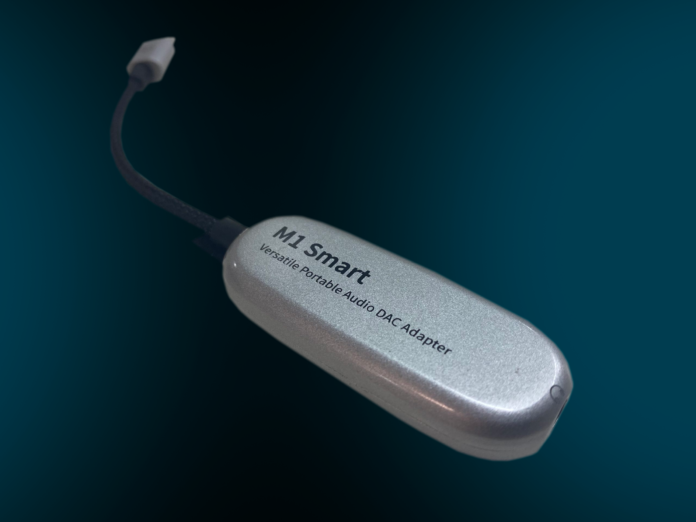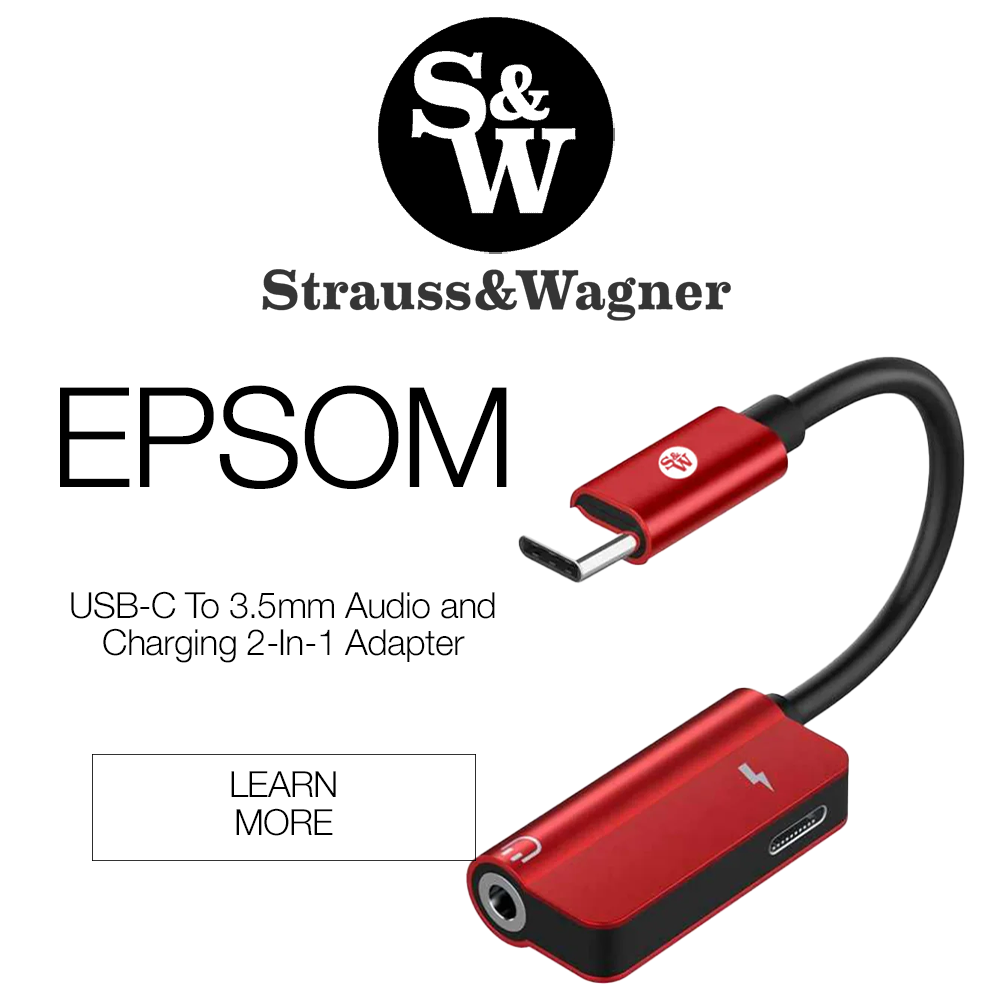I have come across some interesting DAC dongles since reviewing products for MajorHiFi, I even wrote a whole list on some of the ones I thought were the best. It surprised me when the M2 Smart arrived at my review desk, as I didn’t expect the next product that I would get to try out from MUSE HiFi would be a DAC dongle. This is a generously priced DAC adapter that has both lightning and USB-C versions, meant to work with wired headphones, earphones, and IEMs. It only costs $39, so let’s see if the M2 Smart can bring anything of value to the table.
Build
A long fabric cable attaches itself to a rather small chassis, with a silver casing and a black mirrored surface complete with an LED light. Made from zinc alloy, this dongle has a hard and durable feel, increasing its value and hopefully its longevity. I think I would have preferred a detachable cable to simply swap between Type C and lightning, but for the price, I am okay with just having two versions. On the side of each version is an additional USB-C port for charging, acting as a power adapter to charge a separate device while using the dongle. This is a neat feature that I haven’t seen used on any other DAC dongle, so it is a welcome addition here. An LED light on the device is used to indicate which ports are in use. It also has the added benefit of an in-line mic to make the M1 Smart an even better all-around product.
Sound Impressions
A simple DAC dongle like the M1 Smart has the opportunity to boast a lot of power, as I’ve heard in past models. Using a couple of different IEMs with my iPhone 11, I was able to achieve a comfortable volume just past the midpoint of the gain adjuster. Going past this point can result in more substantial loudness, especially for low impedance IEM, however, over-ear headphones with medium levels of impedance never exceeded too far in amplitude.
In terms of how the sound signature is shaped using the M1 Smart, there were a few consistencies that I discovered throughout my testing. Of course, I had to try this DAC dongle with MUSE HiFi’s very own POWER Planar IEMs, and I was not disappointed by the results. I also used the Raptgo Hook X which I seemingly cannot stop listening to, as well as the Shozy Magma which I recently reviewed. They shared equal levels of power, with the POWER Planar unsurprisingly showcasing the strongest response. The POWER Planar already has a pretty dominant bass, but using the M1 Smart I really felt like it took center stage, both tonally and in the soundstage.
Regarding the soundstage, I didn’t notice any significant enhancements, but the M1 Smart makes sure to keep IEMs with good soundstages intact. For example, on the Hook X, the spatial imaging steadies its dome-like appearance but played at a more surface level. It feels like this is the closest the Hook X can get to a linear soundstage. In the frequency response, the M1 Smart is clean and tidy, not exactly driving the tone with much weight, but still offering some spark, particularly in the treble region where frequencies sound like they have some increased shine. If I had to point out any noticeable flaw with the sound signature, it is that I think the mids take too much of a backseat to the rest of the timbre. They still respond naturally, but without any considerable drive.
Summary
There isn’t much to the M1 Smart from MUSE HiFi but for its economical price, this DAC dongle is a good option for those looking for something simple. The extra charging port is also a huge plus that gives the device even more practical uses, exercising its value past just another DAC adapter.
| Pros | Cons |
| · Apple and Android support
· Good power for IEMs · Heightened treble · Spatial fidelity · Extra charging port · Solid build · Price |
· No detachable cable
· Less powerful midrange · Not many features |
Find more from MUSE HiFi at Audio46.
MAJORHIFI may receive commissions from retail offers.











